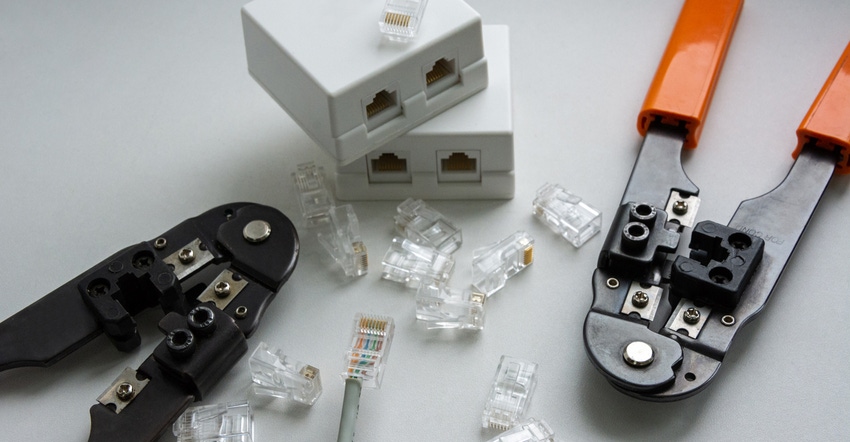February 11, 2021

Gov. Tim Walz announced that the Minnesota Department of Employment and Economic Development will award grants totaling $20,645,425 to 39 projects under the state’s Border-to-Border Broadband Development Grant program.
State grant dollars are matched by $33,695,279 in local funds, for a total investment in broadband infrastructure. The projects will bring broadband access to 6,922 businesses, homes and community institutions. This is the sixth year for the program.
The funding, which was approved during the 2019 legislative sessions, goes to broadband providers to build out wireline broadband infrastructure to unserved and underserved locations across the state. Here are some of the grant projects awarded this round:
AcenTek; Rural Peterson Exchange FTTH. Grant: $1,492,096. This last-mile project will serve 214 unserved households, 18 unserved businesses, 88 unserved farms and two unserved community anchor institutions, as well as 47 underserved households and five underserved businesses in areas of Fillmore and Winona counties.
Arvig (Tekstar Communications Inc.); Lake Osakis, Sauk Lake and Smith Lake Project. Grant: $486,458. This middle- and last-mile project will upgrade approximately 230 unserved and 39 underserved locations in Todd and Douglas counties.
Bevcomm (Blue Earth Valley Telephone Co., Easton Telephone Co. and Cannon Valley Telecom); Rural Faribault County and Martin County Fiber Expansion Phase 2 Project. Grant: $1,182,818.This last-mile project will serve about two unserved households, 203 underserved households, 46 underserved businesses and 181 underserved farms in portions of Faribault and Martin counties.
Consolidated Telephone Co.; Stark-Ross Lake area. Grant: $350,805. This last-mile project will serve approximately 180 unserved locations in a portion of Ross Lake Township in Crow Wing County.
Garden Valley Technologies; Northwest Thief River Falls and Euclid. Grant: $1,640,722.This middle- and last-mile project will serve 104 unserved and 22 underserved locations in portions of Marshall and Polk counties.
Gardonville Cooperative Telephone Association; Douglas County Road 34 FTTH Project. Grant: $1,551,370.This last-mile project will serve 71 unserved and 544 underserved locations in Ida and Carlos townships in Douglas County.
Halstad Telephone Co.; North Fisher Expansion. Grant: $619,000.
This last-mile project will upgrade approximately 57 unserved and seven underserved locations in portions of Huntsville, Nesbit and Fanny townships in Polk County.
KMTelecom: Rock Dell Northwest Fiber Build. Grant: $385,173. This last-mile project will serve approximately 125 unserved locations in rural Ashland and Vernon townships in Dodge County, and Salem Township in Olmsted County.
KMTelecom; Rock Dell Southwest Fiber Build. Grant: $404,709. This last-mile project will serve approximately 96 unserved households, 70 farms and five unserved businesses in rural Vernon Township in Dodge County, and Sargeant Township in Mower County.
Lismore Cooperative Telephone Co. (Lismore Broadband); Iona FTTP. Grant: $219,714. This last-mile and middle-mile project will serve approximately 100 unserved locations, including 75 households, nine businesses, 13 farms and three community institutions within the town of Iona.
MiBroadband LLC; Rural Preston FTTP. Grant: $1,173,330. The Rural Preston fiber-to-the-premises project will serve 231 unserved and 26 underserved locations in the rural portions of southern Fillmore County.
Nuvera Communications Inc.; Goodhue West FTTP. Grant: $532,232. This last-mile project will serve 148 unserved and two underserved locations in Goodhue, Zumbrota, Minneola and Belle Creek townships in Goodhue County, and Chester Township in Wabasha County.
Nuvera Communications Inc.; New Ulm HDT 202 FTTP. Grant: $444,386.
This last-mile project north of New Ulm will serve approximately 80 unserved and 67 underserved locations in Nicollet County.
Runestone Telecom Association; Villard. Grant: $1,463,259. This last-mile project will serve 496 unserved households, 36 unserved businesses, nine unserved farms and five unserved community anchor institutions in northeast Pope County.
Sytek Communications; Morrison/Todd/Stearns County FTTP Project. Grant: $1,048,668. This last-mile project will bring service to 130 locations in southwest Morrison, southeastern Todd and northeastern Stearns counties.
West Central Telephone Association; Rural Staples Phase 2. Grant: $465,050. This last-mile project will serve 56 unserved locations in extremely rural areas of Wadena and Cass counties.
Wikstrom Telephone Co. Inc.; Wiktel NW MN Broadband 2020. Grant: $490,997. This last-mile project will serve 153 unserved locations in sparsely populated areas in Kittson, Marshall and Polk counties.
Winnebago Cooperative Telecom Association; SE Faribault/W Freeborn County FTTP. Grant: $953,842. This last-mile fiber-optic project will bring service to 319 unserved locations, including 289 homes, 16 businesses, 11 farms and three community anchor institutions in the townships of Clark, Foster, Kiester, Seely, Alden, Carlston, Manchester, Mansfield and Pickerel Lake, in southeastern Faribault and western Freeborn counties.
The state of Minnesota has set a goal for universal access and high-speed internet so that by no later than 2022, all Minnesota businesses and homes have access to high-speed broadband that provides minimum download speeds of at least 25 megabits per second, and minimum upload speeds of at least 3 megabits per second. And by no later than 2026, all Minnesota businesses and homes will have access to at least one provider of broadband with download speeds of at least 100 megabits per second, and upload speeds of at least 20 megabits per second.
Source: Office of Gov. Tim Walz and Lt. Gov. Peggy Flanagan, which is solely responsible for the information provided and is wholly owned by the source. Informa Business Media and all of its subsidiaries are not responsible for any of the content contained in this information asset.
You May Also Like




